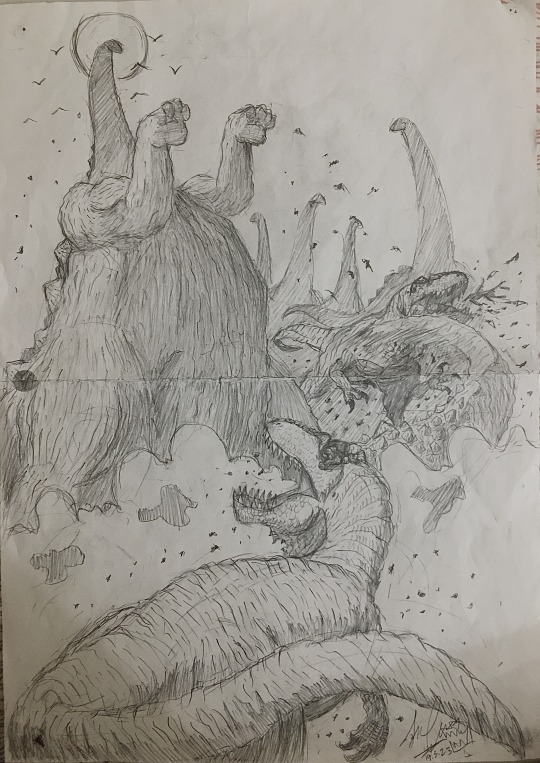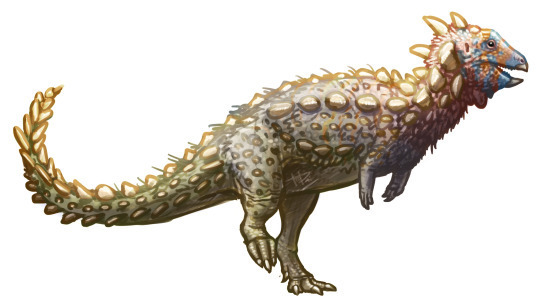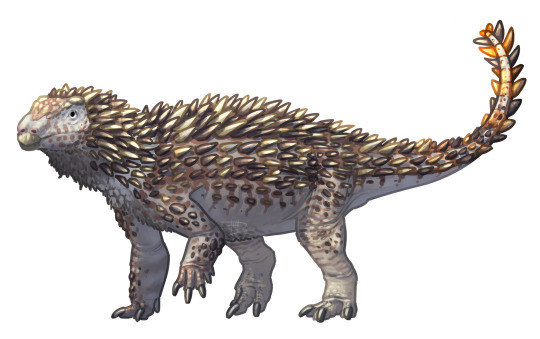#candelero
Explore tagged Tumblr posts
Text

73 notes
·
View notes
Text
updates on the design
Since it’s been a while since I gave any updates on the designs and I’m finally on break and I have got idea here’s some of the design peaks for you guys

I started to get an idea of the design for Jiko and this is the progress of it. I’m giving her a wild cavewoman look or something that looks rough. I think the black fluff suits her very well.

I finished up her first form but I may put more ruffles on her these are usually called stable forms, and the next one is plan to bloom into a face
Bonus : I also made a small drawing of my AU Oktavia opening her mouth low she barely does this mostly one she doesn’t need to because she can consume food still and talk into it just seems unnecessary and it terrifies the others. I thought this concept was cool how she could break her mask and one of pieces being her actual mouth I think she clearly only does this when she is mad or enraged, but I think it’s a cool

That’s all I got for today
#au#madoka magica#pmmm au#madoka magica au#puella magi madoka magica#pmmm#oc#hi#madoka magica witch#still working on art#oktavia von seckendorff#original character#candelero#concept art#artists on tumblr
5 notes
·
View notes
Text
Archovember 2024 Day 21 - Jakapil kaniukura

Jakapil kaniukura was a basal thyreophoran, the group that led to stegosaurs in the Late Jurassic and ankylosaurs in the Cretaceous. In the Early Jurassic, thyreophorans like Scutellosaurus were small and bipedal, eventually becoming the armoured tanks of later eras.
However, Jakapil lived in the Late Cretaceous of Argentina, at the same time as ankylosaurs on other continents, and its discovery represents a previously unknown lineage of thyreophoran in South America. Though fragmentary, its proportions seem to suggest it was bipedal like the early thyreophorans, and it also had distinct teeth that allowed it to chew, rather than shear leaves. Hopefully we can uncover more information about this strange little armored dinosaur in the future.

Jakapil lived in the Candeleros Formation which, in the Late Cretaceous, was an ancient desert called the Kokorkom Desert. This environment was covered in windblown sand, broken up by oases. Here, the tiny Jakapil would have lived in the shadow of sauropods like Limaysaurus and Rayososaurus, and the giant theropod Giganotosaurus. It would have also lived alongside small theropods like Bicentenaria, Buitreraptor, and the alvarezsaurid Alnashetri, as well as pseudosuchians like Araripesuchus, rhynchocephalians like Priosphenodon and Tika, mammals like Cronopio, turtles like Prochelidella, and frogs like Avitabatrachus.

This art may be used for educational purposes, with credit, but please contact me first for permission before using my art. I would like to know where and how it is being used. If you don’t have something to add that was not already addressed in this caption, please do not repost this art. Thank you!
#once again I already had this drawn but this time it’s late cause I had a migraine headache today and couldn’t write the caption#Jakapil kaniukura#Jakapil#thyreophorans#ornithischians#dinosaurs#archosaurs#archosauromorphs#reptiles#Archovember#archovember2024#Dinovember#Dinovember2024#SaritaDrawsPalaeo#Late Cretaceous#Argentina#Candeleros Formation
180 notes
·
View notes
Text

Smite from above
I didn’t have access to my tablet this time which means no digital art atm but I did manage to crank one out on paper this time =>
This is an idea I’ve had for quite some time but I’ve had no success actually putting it on paper before but I think I did it this time! Quite proud of it if I do say so myself~
#dinosaurs#patagotitan#giganotosaurus#paleoart#paleontology#candeleros formation#dinosaur art#jurassic park#drawing#traditional drawing#traditional art#I have no idea if titanosaurs could rear up like this#Probably not but shhhh I needed something dramatic looking ;)
63 notes
·
View notes
Text



Various Artists - Cartel Tycoon Original Soundtrack | Eck Echo Records | 2024 | Black
#los candeleros#tribilin sound#dengue dengue dengue#prisma#dj farrapo#orkestra mendoze#campos#son rompe pera#meridian brothers#chico unicornio#cumbia sound#ghetto kumbe#cartel tycoon#eck echo records#vinyl#black vinyl#lp#music#soundtrack#moon moose#latin music#cumbia
2 notes
·
View notes
Text
solo estar en el lugar mas oscuro que ha estado mi mente, solo arrepentirme de ser como soy, solo querer desaparecer porque le quitaría los problemas a quienes amo, solo querer dejar de sentirme horrible conmigo y dejar de ser como soy, solo querer mejorar violentamente para dejar de ser una molestia
sabes que es lo peor? que me dicen que no soy una molestia pero si es así, por qué
por qué cada vez que hago algo o tomo una decisión se presenta un problema? por qué no puedo darme cuenta de los errores pasados y evitarlos en la actualidad? por que no puedo dejar de hacerla sentir mal? por qué me dice que no importa si la hace sentir mal? por que el amor tiene que ser agridulce?
3 notes
·
View notes
Text

Giganotosaurus forages for nesting material in the ancient Candeleros swampland.
#artists on tumblr#digital art#digital illustration#dinosaurs#krita#paleoart#paleontology#dinosaur#palaeoblr
466 notes
·
View notes
Text

' ¿tengo cara de que ese sea mi estilo? ' le pregunta, medio indignado con ella ' la linterna del celular funciona igual que cualquier otra ¿no? ' ✰ @satcmis

"debiste traer una linterna- o un candelero, si es más tu estilo..." .
#no un candelero ASJDAJSDHSJADS#q risa#buenasss#𝐬𝐭𝐨𝐩 𝐭𝐫𝐲𝐢𝐧𝐠 𝐭𝐨 𝐤𝐧𝐨𝐰 𝐭𝐡𝐞 𝐝𝐚𝐦𝐧 𝐦𝐞𝐚𝐧𝐢𝐧𝐠; archivo de conversaciones.#satcmis
35 notes
·
View notes
Text

A new species of Araripesuchus with durophagous dentition increases the ecological disparity among uruguaysuchid crocodyliforms
María Lucila Fernández Dumonta, Diego Pol, Paula Bona &Sebastián Apesteguía
Abstract
Notosuchia is a group of crocodyliforms with mostly terrestrial habits that lived during the Mesozoic and up to the Miocene. Within this group Uruguaysuchidae is so far represented by eight species, six of them clustered in the genus Araripesuchus. Two species of this genus, A. patagonicus and A. buitreraensis, come from different localities in Patagonia (Argentina) from the Candeleros Formation (Cenomanian age). Here we present a third species of Araripesuchus from this formation. The new species comes from the same locality as Araripesuchus buitreraensis, but differs in numerous features including the presence of different molariform teeth. The new species was included in a phylogenetic analysis and, in agreement with previous analyses, Uruguaysuchidae is recovered as monophyletic and placed within Notosuchia as the sister clade of Peirosauridae. Uruguaysuchidae includes all species of Araripesuchus as well as Anatosuchus minor and Uruguaysuchus aznarezi. The new species adds new information to the ecological diversity of the group its bulbous molariforms with a quadrangular occlusal surface bounded by mamelons is interpreted as indicative of a durophagous diet, suggesting the presence of niche partitioning between the two sympatric species A. manzanensis and A. buitreraensis.
Read the paper here:
A new species of Araripesuchus with durophagous dentition increases the ecological disparity among uruguaysuchid crocodyliforms: Journal of Systematic Palaeontology: Vol 22 , No 1 - Get Access (tandfonline.com)
#prehistoric#paleontology#reptile#herpetology#crocodilian#crocodyloform#animals#nature#south america#notosuchia
170 notes
·
View notes
Text

Year of the Snake - Mesozoic Edition
Celebrating the Year of the Snake with Najash rionegrina, a basal snake from the Cenomanian-aged Candeleros Formation of Argentina that is highly unusual among modern ones for retaining the fully-functioning hind limbs, pelvic girdle and sacrum of its lizard-like ancestors from the middle Jurassic. The other snakes that have been flourishing around the world ever since they first evolved about 94 million years ago have lost those primitive features completely.
#paleoart#dinosaur#dinosaurs#paleontology#najash#chinese new year#lunar new year#year of the snake#year of the snake 2025#chinese new year 2025#lunar new year 2025#late cretaceous#cretaceous period#cretaceous
44 notes
·
View notes
Text

48 notes
·
View notes
Text
candelero concept #2
another concept for a witch I’m still working on her second design. It’s probably going to be smaller than her first form to reference. Either way I should be getting chapter 5 spit out today hopefully

bonus : Mira “goddess” form concept

#au#madoka magica#pmmm au#madoka magica au#puella magi madoka magica#Concept#candelero#pmmm#oc#still working on art#madoka magica witch#original character#art
5 notes
·
View notes
Text
Campananeyen fragilissimus Lerzo et al., 2024 (new genus and species)

(Braincase of Campananeyen fragilissimus [scale bar = 5 cm], from Lerzo et al., 2024)
Meaning of name: Campananeyen = Las Campanas air [in Mapudungun]; fragilissimus = the most fragile [in Latin]
Age: Late Cretaceous (Cenomanian)
Where found: Candeleros Formation, Neuquén, Argentina
How much is known: Partial skeleton of one individual including parts of the skull, some vertebrae, the hips, and the feet.
Notes: Campananeyen was a rebbachisaurid, a group of sauropods best known for including the bizarre Nigersaurus from the Early Cretaceous of Niger. The preserved portions of the skull in the Campananeyen type specimen had been previously described in a 2016 paper, but were left unnamed at the time. Like in birds, much of the skeleton in sauropods was hollowed out by a complex network of air sacs extending from their respiratory system. In Campananeyen, this hollowing appears to have been particularly extensive, as it exhibits air spaces in the braincase and hip bones that have not been observed in other rebbachisaurids.
Reference: Lerzo, L.N., F.T. Fernández-Baldor, J.I. Canale, J.A. Whitlock, A. Otero, and P.A. Gallina. 2024. They all floated in the Cretaceous: new rebbachisaurid (Sauropoda, Diplodocoidea) with a highly pneumatized skeleton from the Upper Cretaceous (lower Cenomanian) of Patagonia, Argentina. Historical Biology advance online publication. doi: 10.1080/08912963.2024.2383708
68 notes
·
View notes
Text
Giganotosaurus ("Giant Southern Lizard") was one of the largest known carnivores to walk the earth. It lived in Patagonia during the late Cretaceous period (99.6-95 Mya)

Giganotosaurus was a Carcharodontosaurid theropod dinosaur discovered by Ruben Carolini in the Candeleros formation of Patagonia, South America.
Giganotosaurus was a massive apex predator that specialized in hunting some of the largest land animals to ever exist: Titanosaurs. The last of the sauropods and the largest.
#giganotosaurus#theropod#paleoart#paleontology#evolution#dinosaur#dinosaurs#animal art#animals#zoology#animal#patagonia#south america#late cretaceous#cretaceous
20 notes
·
View notes
Text
Jakapil vs Spicomellus
Jakapil kaniukura

Artwork by @i-draws-dinosaurs, written by @zygodactylus
Name Meaning: Deep Jawed Shield Bearer
Time: 99 to 97 million years ago (Cenomanian stage of the Late Cretaceous)
Location: Candeleros Formation, Neuquen and Mendoza, Argentina
Jakapil is to nonavian dinosaurs as Annakacygna is to birds. This may seem extreme - what could possibly top the cup zoomy swan of filter feeding death - but Jakapil is a weird little dude. It was a bipedal armored dinosaur, similar to the Early Jurassic basal form Scutellosaurus - except, you’ll note, it lived a hundred million years later. At about 1.5 meters long, it was a small dinosaur, again similar to its relative from so long ago. It had rows of osteoderms on its body, and a predentary - unlike other early thyreophorans. It may have diverged from the main thyreophoran group in the Sinemurian, representing a lost lineage of bipedal armored forms that persisted (presumably in South America). However, its classification is a major debate among researchers - many features of the jaw are more similar to Ceratopsians than to Thyreophorans, indicating it may be an armored variant of an early Ceratopsian (which, would be, to say the least, wild) or a completely new clade of Ornithischian altogether! The large amount of wear on its teeth indicates it chewed its food, rather than sheering or chopping it - something only found in a few Ornithischian groups. It lived in a large desert environment, peppered with oases, and filled with a variety of other animals - fish, frogs, tuatara, snakes, turtles, mammals, and other dinosaurs like Andesaurus, Ekrixinatosaurus, Giganotosaurus, Buitreraptor, Alnashetri, and Bicentenaria.
Spicomellus afer

Artwork by @i-draws-dinosaurs, written by @zygodactylus
Name Meaning: African Collar of Spikes
Time: 168 to 164 million years ago (Bathonian to Callovian stages of the Middle Jurassic)
Location: Third Subunit, El Mers Group, Fès-Meknès, Morocco
Spicomellus is the oldest known Ankylosaur, and also the first described Ankylosaur from North Africa! But that isn’t even the weirdest thing about it! Spicomellus had dermal spikes, fused to the bone, forming a collar (for which it was named) around its neck. Given that the spike were fused to the underlying bone - something no other ankylosaur does - it is probable that it wouldn’t have had a particularly flexible neck, or an easy time moving in general if the pattern continued throughout the body. It probably would have been around 3 meter long at the most, similar in size to other ankylosaurs from the Middle Jurassic. Coming from the El Mers Group, i tlived alongside Cetiosaurus, the stegosaur Adratiklit, megalosaurs, and teleosaurids. Spicomellus adds to a growing diversity of Jurassic Ankylosaurs, showing how Ankylosaurs and Stegosaurs lived alongside each other for a large period of time (the Middle and Late Jurassic epochs) and that the extinction of the Stegosaurs must have been due to a different, unrelated factor.
#dmm#dmm rising stars#dinosaur march madness#dinosaurs#birds#birblr#palaeoblr#paleontology#march madness#bracket#polls#jakapil#spicomellus#round three
184 notes
·
View notes
Text
odio que el mosca haya quitado el pajarito azul asi que lo deje y volví aca PERO NO DEVI VOLVR ACA PORQUE AYER SALIO LA SEGUNDA TEMPORADA DE MIS PAPÁS
Y QUEDÓ LA ZORRA
AY TIENEN GO FANDOM POR ESTAR 4 AÑOS HACIENDO EL ANGST MAS SOUL CRUSHING DE LA VIDA AHORA TENEMOS QUE MAMARNOS ESTA WEAAAAAAAAAAAAAAAAAAAAAA
no doy más
2 notes
·
View notes